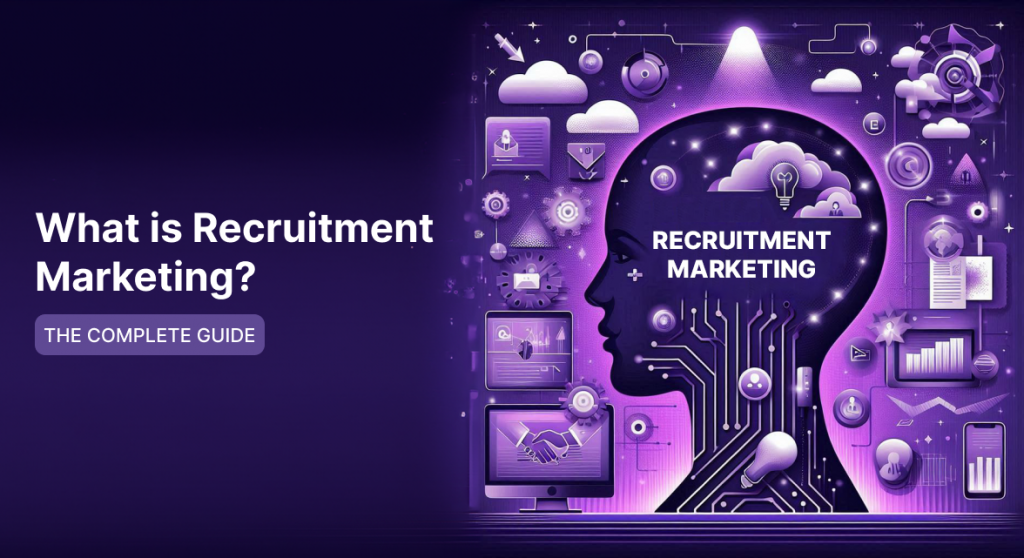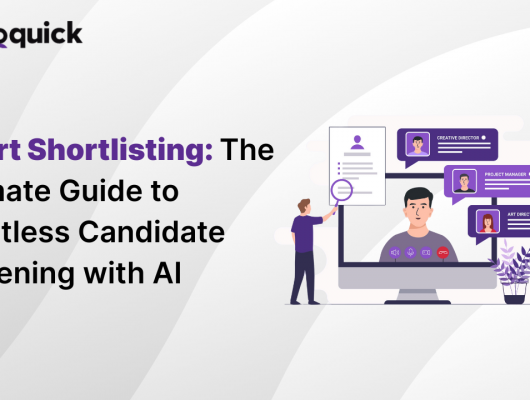Table of Contents

- Introduction
- What is Recruitment Marketing?
- The Importance of Recruitment Marketing
- Key Components of Recruitment Marketing
- Benefits of Recruitment Marketing
- Best Practices for Recruitment Marketing
- Examples of Successful Recruitment Marketing
- Conclusion
- Variable Values and Occurrences
Introduction
In the modern job market, finding the right talent has become more challenging than ever. Companies aren’t competing for customers but also for top-tier employees. This is where recruitment marketing comes into play. What is recruitment marketing? This guide will explore this concept in detail. It will help you understand its importance, parts, benefits, and best practices.
What is recruitment marketing?
Recruitment marketing is promoting your employer brand. It’s to attract, engage, and nurture job seekers. It means using marketing principles in recruitment. This creates a compelling employer brand. It resonates with potential candidates.
Think of recruitment marketing as the art of making your company irresistible. It makes your company irresistible to job seekers. Companies entice exceptional professionals with compelling offers. They can do this by making a strong employer brand. They can also use many marketing strategies.
The Importance of Recruitment Marketing

Why should businesses invest in recruitment marketing? Here are some compelling reasons:
- Competitive Advantage: In a crowded job market, standing out is crucial. Recruitment marketing helps differentiate your company from competitors.
- Companies that lure can discover hidden elite talent: Effective recruitment marketing can reach these passive candidates.
- Nurture a talent reserve: Companies create a pool of qualified talent through ongoing candidate engagement. They’re for upcoming vacancies.
- A strong employer brand and engaged talent can cut hiring time.
Key Components of Recruitment Marketing
To understand what makes recruitment marketing effective, let’s break down its key components.
1. Employer Branding
Your employer brand is your company’s reputation as a place to work. It encompasses your values, culture, and the employee experience you offer. A strong employer brand attracts candidates. They share your company’s mission and values.
2. Content Marketing
Creating and sharing valuable content is crucial in recruitment marketing. This can include blog posts, videos, social media updates, and more. The goal is to show your company’s culture. It should explain why your organization is a great place to work.
3. Social Media Engagement
Social media platforms are powerful tools for recruitment marketing. They let you reach a broad audience. Establish meaningful bonds with influential individuals to forge lasting connections. Sharing employee stories, company events, and job openings on social media can boost your employer brand.
4. Candidate Experience
Job seekers go through the candidate experience when they apply to your company. A good candidate experience can leave a lasting impression. It can also encourage top talent to join your team.
5. Recruitment Analytics
Measuring the effectiveness of your recruitment marketing efforts is essential. You can use recruitment analytics to track metrics. These include application rates, candidate engagement, and time-to-hire. They help you refine your strategies over time.
Benefits of recruitment marketing
Investing in recruitment marketing offers several benefits:
- Attracting Quality Candidates: Good employer branding and targeted marketing can attract top candidates. They will be a good fit for your company.
- Your employer brand attracts candidates: They are more likely to stay with your company. This cuts turnover and boosts retention.
- Improving Recruitment Efficiency: A good strategy for marketing recruitment can speed up hiring. It makes it more efficient and cheaper.
- Building a Stronger Employer Brand: Consistent recruitment marketing makes it stronger and more recognizable.
Best Practices for Recruitment Marketing

To make the most of your recruitment marketing efforts, consider these best practices:
1. Define your employer value proposition (EVP)
Your EVP is the unique set of benefits and opportunities. Employees get them in return for their skills and experience. It’s your company’s unique work environment that’s captured by a precise EVP definition.
2. Leverage employee advocacy
Encourage your employees to share their positive experiences. They should promote your company on social media. Employee advocacy can be a powerful tool in recruitment marketing.
3. Use video content
Videos are engaging. They can show your company culture, office, and employee testimonials well. Consider creating videos that highlight different aspects of working at your company.
4. Personalize candidate communications
Personalized communication can make candidates feel valued and appreciated. Use email marketing and social media to send tailored messages to potential candidates.
5. Optimize Your Careers Page
Your careers page is often the first point of contact for job seekers. Design an interface that is easy to use. It provides clear and attractive information. Include detailed job descriptions, employee testimonials, and information about it’s company culture.
Examples of Successful Recruitment Marketing
Let’s look at a few examples. These are companies that have used recruitment marketing strategies well.
1. Google
Google’s employer brand is synonymous with innovation and creativity. They use many channels. These include social media, video, and blogs. They use them to showcase their special company culture. They also use them to highlight the benefits of working at Google.
2. Salesforce
Salesforce leverages employee stories and testimonials to highlight its inclusive and dynamic workplace. It’s recruitment marketing efforts emphasize their commitment to diversity and employee well-being.
3. HubSpot
HubSpot’s recruitment marketing strategy focuses on transparency and authenticity. They’ve shared behind-the-scenes looks at their work environment. They share their company’s values and culture transparently.
Conclusion
Today’s job market is competitive. Understanding recruitment marketing and using effective strategies is vital. They help attract and keep top talent. Companies can build a strong employer brand that resonates with job seekers. They do this by focusing on employer branding. They use content marketing, social media, and candidate experience. Remember, recruitment marketing isn’t a one-time effort. It is a continuous process that needs regular evaluation and optimization.
FAQ:
1. What’s recruitment marketing?
Recruitment marketing is promoting your employer brand. The goal is to attract, engage, and nurture job seekers. It’s much like how marketing attracts and keeps customers. Traditional recruitment focuses on filling open positions. In contrast, recruitment marketing aims to build a strong employer brand. It also aims to build a pipeline of potential candidates. It does this through continuous engagement and relationship-building.
2. It’s important for companies to have recruitment marketing.
Companies should invest time and resources into recruitment marketing. It’s a crucial step in finding the right talent.
Recruitment marketing is crucial. It helps companies stand out in a tough job market. It helps them attract top candidates and build a talent pool for future jobs. It also makes the candidate experience better. It helps keep employees. It slashes the time and expense of hiring.
3. What are the key components of an effective recruitment marketing strategy?
An effective recruitment marketing strategy includes:
- Employer Branding: Creating a strong and attractive employer brand.
- Content Marketing involves sharing valuable content. It’s about your company’s culture and job opportunities.
- Engagement on Social Media means using social media to reach and talk with potential candidates.
- Candidate Experience: Ensuring it’s a positive and seamless experience for job applicants.
- Recruitment Analytics: Track and test recruitment strategies to refine performance.
4. How can companies measure the success of their recruitment marketing efforts?
Companies can measure the success of their recruitment marketing efforts by tracking metrics. They can track things such as:
- Application Rates are the number of applications received for open positions. It’s a key metric.
- Candidate Engagement: The level of interaction and interest from potential candidates we’ve had.
- Time-to-Hire: It’s the time it takes to fill a position.
- Quality of Hire: It’s the performance and retention rate of new hires.
- Employer Brand Awareness is the visibility of the company. It is also the company’s reputation as an employer.
5. Can you give examples? I’m looking for companies that have successful recruitment marketing strategies. Ones that have worked for them.
Several companies have earned renown for their successful recruitment marketing strategies. For instance:
- Google has a reputation for its innovative employer brand. It uses various channels to show its culture and attract top talent.
- Salesforce emphasizes diversity, inclusion, and employee well-being through engaging content and employee testimonials.
- HubSpot focuses on honesty and authenticity. They’ve shown behind-the-scenes looks at their work environment. They share their values and culture in a transparent conversation.





